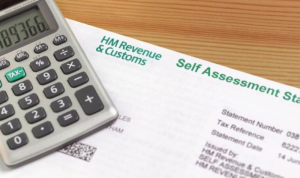
The number of people choosing the flexible freelance lifestyle has grown massively over the last decade, in the UK there are now over 4.8 million people registered as self-employed.
With so many freelancers to keep track of, HMRC have set strict rules on how you should register as a freelancer, and how to pay tax if you are freelance.
As a freelance recruitment agency, we often get asked how to register as a freelancer with HMRC so we are going to talk you through how to do this in five stress-free steps, so you can focus on the creative stuff.
Step 1: Decide on how you are going to freelance
This is one of the most important decisions you will make, and you have four options to pick from:
Work as a Sole Trader: this means you are self-employed and are operating as an individual. Your income is yours to keep after tax, and you are responsible for the losses and the costs that your business makes.
Register your own Limited Company: this means you are operating through a business which is legally separate to you. You would be both the owner and an employee of the company. Your limited company’s finances including losses will be separate from your personal finances.
Set up a Limited Liability Partnership: this is when you work in partnership with at least one other person (or company) and share the responsibility for the business’s expenses and losses. You share the profits after you’ve each paid tax on your share.
Work under an Umbrella Company: An Umbrella company is an employer of contractors, providing them with the benefits of permanent employment along with the benefits and flexibility of working as a freelancer. Umbrella companies will invoice your client on your behalf, and then pay you as PAYE with tax and national insurance deductions. You would still be able to claim tax back on costs such as travel and expenses. Umbrella companies normally charge a fee for providing this service, which is often a fixed weekly or monthly amount.
There are pros and cons to each of these options, which you need to weigh against your priorities. Your choice will have implications on your tax arrangements, income, and the amount of admin; so decide carefully!
Step 2: Setting yourself up properly
- To become a sole trader, you just need to register as self-employed (see below)
- To form a Limited Company see here.
- To set up as a Limited Liability Partnership, follow this link.
- To sign up to an Umbrella company, first we advise you compare service offerings to find one that suits you best – make sure to check out online reviews to ensure you are selecting a trustworthy company! The next step would be to contact your chosen Umbrella company, they will then send you paperwork to complete to be onboarded as one of their contractors.
Step 3: Register as self-employed with HMRC
You only need to register as Self-Employed if you are going to work as a Sole Trader or in a Limited Liability Partnership – for those intending to work via a Limited Company or Umbrella company you can skip this section, your tax payments are different.
Technically you don’t need register until October in your second year of trading, but we recommend you register soon after you start freelancing. You will be thankful for getting this out the way early – it is easier to keep track of your tax as you go along rather than trying to back date everything two years later!
To register as self-employed, visit the government website here.
Paying tax as someone who is self-employed is very different to what you would be used to as an employee. Rather than this coming out of your pay cheque automatically each month / week, you need to take responsibility for submitting an annual tax return. To do this you will need to keep a record of everything you earn (so file those invoices somewhere safe!) as well as keeping track of business expenses as you can offset the amount of tax you pay against these later.
Which? has developed a useful tax calculator that is officially recognised by HMRC, it can you predict how much tax you need to put aside.
Make sure to pay attention to HMRC’s deadlines, as you may be fined if you register or file returns late:
- Deadline for submitting paper tax returns: 31st October
- Deadline for submitting online tax returns: 31st January
- Deadline for payments on tax bill: 31st January and 31st July
- Deadline for registering self-assessment: 5th October
Step 4: Keep track of your accounts
If you will be calculating your own taxes, we highly recommend you get yourself some accounting software that will help you manage your invoices, tax returns and business expenses in one easy place. It is a bit like having a virtual accountant and will help you stay organised and keep on top of everything. There is nothing worst than having to scramble around to find old receipts when the HMRC deadline is looming. Software such as Quickbooks or Xero are recommended for this, and can help you keep on top of everything.
Step 5: Be aware of legislation
HMRC sets the rules on how companies work with freelancers to ensure companies and freelancers are not underpaying tax. A big part of this is your client’s responsibility, but as a freelancer you should also be aware of the rules and make sure you are following them too.
It is particularly important you are aware of the IR35 Off-Payroll legislation which will be enforced from April 2021. We recommend you check out the government site for information on IR35 and useful tools to help you prepare for the changes next year!
We hope this article has been helpful. If you have any advice of your own for new freelancers, we would love to hear it!